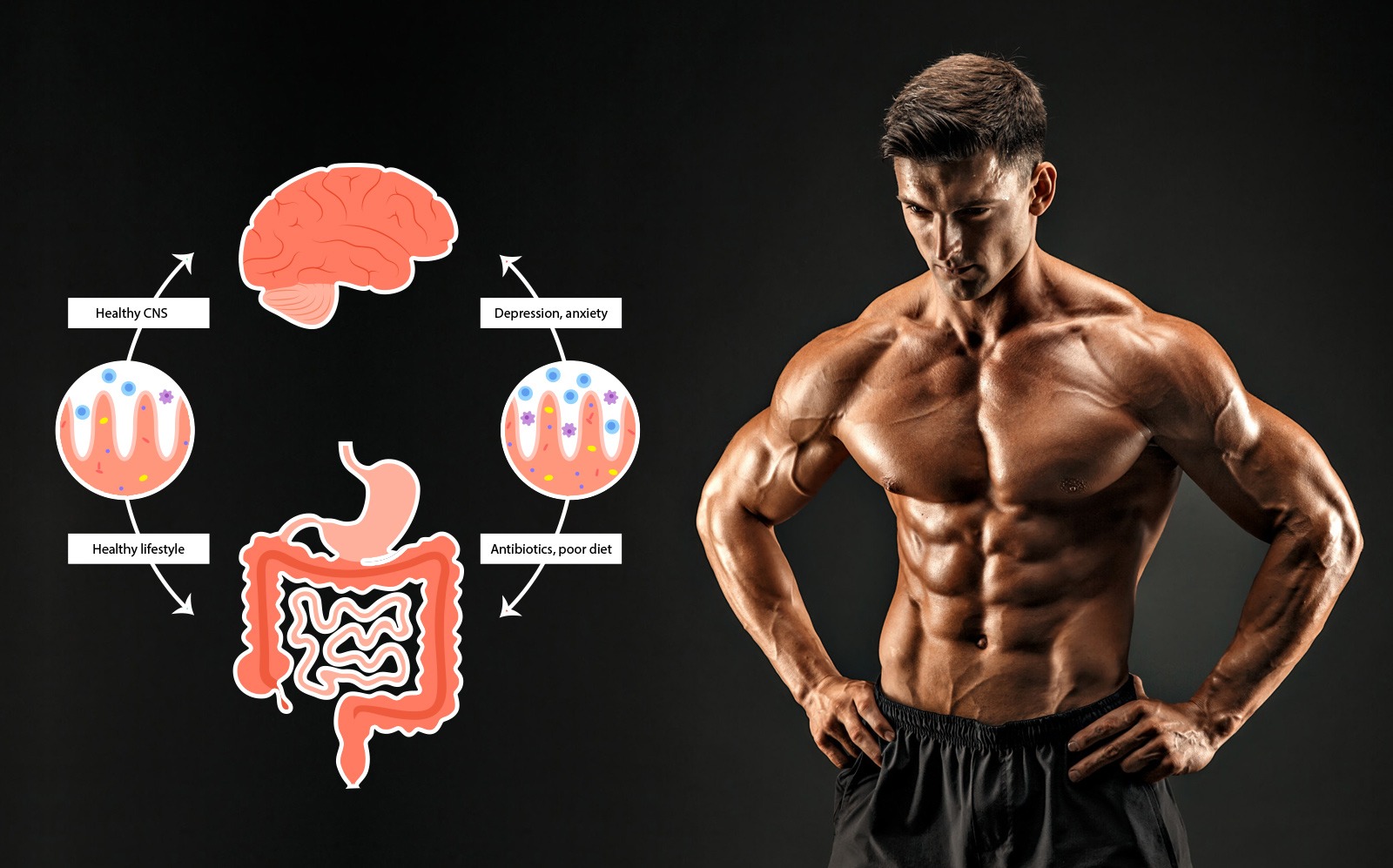
Athlete's Advantage: Health Gains from Regular Sports
Regular participation in sports provides immense health benefits, both physical and mental. Engaging in sports helps improve cardiovascular health, builds muscle strength, enhances flexibility, and boosts mental well-being. Athletes also benefit from better sleep, increased energy, and enhanced cognitive function. Moreover, the discipline and teamwork skills learned through sports extend beyond physical fitness, positively affecting everyday life.
💪 Fitness Guru
20 min read · 3, Jan 2025

1. Physical Health Benefits
When you engage in regular sports, the most obvious benefit is your physical health. It all starts with your heart. Your cardiovascular health improves significantly as your heart gets a good workout. Every time you jog, swim, cycle, or play basketball, your heart pumps more blood, efficiently delivering oxygen to every cell of your body. This helps prevent heart disease and strengthens your heart over time.
Muscle strength is another key advantage. Athletes build muscle mass and strength through constant training. Whether you're lifting weights, running, or engaging in resistance training, your muscles grow stronger, which in turn helps prevent injuries and promotes better posture. Strong muscles also improve your metabolism, allowing your body to burn calories more efficiently.
Another benefit is the improvement in flexibility and coordination. Whether you're stretching before a match or practicing your sports techniques, your body becomes more agile and coordinated. Flexibility also reduces muscle strain and the risk of joint injuries, which is something many non-athletes overlook.
2. Mental Health Benefits
It's not just your body that benefits from sports, but also your mind. Sports are a powerful way to relieve stress and anxiety. When you exercise, your body releases endorphins—those wonderful feel-good hormones that lift your mood and make you feel more relaxed. This is why many people find that after a good workout or a competitive match, they feel lighter, happier, and less burdened by life's worries.
Moreover, sports require a level of concentration and focus that is rare in daily activities. You need to stay sharp, react quickly, and think on your feet—this cognitive stimulation is excellent for your mental health. Over time, it can enhance your memory, problem-solving skills, and your ability to handle complex tasks both in and outside of the game.
Sports also play a significant role in improving your self-esteem and confidence. When you see progress—whether it's running faster, scoring more points, or improving your technique—it boosts your self-image. This newfound confidence seeps into other aspects of your life, making you feel more capable of tackling challenges in your career or personal relationships.
3. Better Sleep and Increased Energy
If you're struggling with sleep or always feeling tired, regular sports can help. Research has shown that people who engage in physical activity, including sports, experience better sleep quality. Not only do you fall asleep faster, but your sleep is deeper and more restful. The physical exertion helps regulate your body’s internal clock and reduces the chances of insomnia or interrupted sleep.
Additionally, regular exercise through sports boosts your overall energy levels. Your body gets used to being active, and soon you find that you have more energy to take on the day. Whether it’s work, school, or simply managing daily tasks, you'll feel more vibrant and less fatigued.
4. Social Benefits and Teamwork Skills
Participating in team sports introduces you to the concept of working together for a common goal. It’s a beautiful thing, my dear. You learn to communicate, collaborate, and support one another. These social skills are valuable in every part of life, from your personal relationships to your professional career.
Team sports also offer a sense of belonging. Being part of a team allows you to forge lasting friendships with people who share common interests. You experience the highs and lows of victories and losses together, which creates strong bonds that go beyond the field.
Even in individual sports, the sense of camaraderie can be felt. You train alongside others, and there's always room for sharing tips, encouragement, and support. The community you build through sports helps you feel connected, reducing feelings of isolation and loneliness.
5. Weight Management and Disease Prevention
Maintaining a healthy weight is another reason why sports are so beneficial. Regular physical activity helps you regulate your weight by burning calories and maintaining muscle mass. When you combine regular exercise with a balanced diet, you’re able to keep your body in good shape, which lowers your risk for obesity-related conditions like diabetes, high blood pressure, and certain cancers.
Regular sports participation can also prevent chronic diseases. It improves circulation, keeps your blood sugar levels in check, and helps your body fight off illnesses. For instance, the strength and flexibility gained from sports reduce the risks of osteoporosis and arthritis as you age.
6. Developing Discipline and Resilience
Sports teach you valuable life skills such as discipline, perseverance, and resilience. When you're an athlete, you have to show up to practice, put in the hard work, and push through even when things aren't going your way. This builds mental strength and teaches you how to stay focused on your goals, even in the face of adversity.
Winning isn't always the outcome in sports; it's the journey and the lessons you learn along the way. Handling defeat and learning to bounce back is something that makes athletes resilient. These life lessons extend beyond sports and can guide you through life's challenges, whether you're facing personal setbacks, academic struggles, or career hurdles.
7. Cognitive Benefits and Brain Health
Sports don’t just make you physically fit—they also enhance your cognitive abilities. Engaging in physical activity improves blood flow to your brain, which increases mental sharpness and cognitive function. This helps you think more clearly and make decisions faster, whether it's in the middle of a game or when faced with challenges in everyday life.
There’s also evidence to suggest that sports improve your ability to multitask. In fast-paced games, you must juggle multiple things at once: tracking the ball, planning your next move, and communicating with your teammates. This kind of mental agility translates to better multitasking abilities in your work and personal life.
8. Long-Term Benefits
My dear, the health benefits of sports are not just for the young. They continue to provide advantages as you age. Regular sports participation helps you maintain your independence as you get older. It improves your flexibility, balance, and strength, reducing the likelihood of falls or injuries.
Additionally, the mental sharpness gained from years of playing sports can help keep your mind engaged in your later years, reducing the risk of age-related cognitive decline such as dementia.
Q&A Section
Ques 1: How often should I play sports to see the health benefits?
Ans: Ideally, aim to engage in at least 150 minutes of moderate-intensity activity, like sports, per week. This can be broken up into shorter sessions throughout the week. However, more active individuals may benefit from more intense sessions.
Ques 2: Can sports help me manage stress?
Ans: Yes, indeed. Physical activity, including sports, boosts the production of endorphins, which are natural mood lifters. Engaging in regular sports can help reduce feelings of anxiety and stress.
Ques 3: What sports are best for cardiovascular health?
Ans: Sports like running, swimming, cycling, and playing tennis are excellent for cardiovascular health as they elevate your heart rate and improve circulation.
Ques 4: Can sports help me improve my sleep?
Ans: Absolutely. Regular participation in sports can help regulate your sleep cycle, leading to improved sleep quality. However, try not to exercise too close to bedtime, as it may have the opposite effect.
Ques 5: I’m older—can I still enjoy the benefits of sports?
Ans: Yes, it's never too late to start! Even low-impact sports like walking, yoga, or swimming can provide health benefits, including improved strength, balance, and cognitive function
Similar Articles
Find more relatable content in similar Articles

Fitness in Tiny Apartments – Creative Space-Saving Workouts...
In today’s urban lifestyle, co.. Read More

The Science of Breathwork: Fitness Beyond Muscles...
Exploring how conscious contro.. Read More

Sweat Science – What Your Sweat Tells About Your Fitness Lev..
Sweat is more than a sign of e.. Read More

Microbiome and Muscle: Gut Health as a Hidden Fitness Tool...
Unlock the hidden potential of.. Read More
© 2024 Copyrights by rFitness. All Rights Reserved.